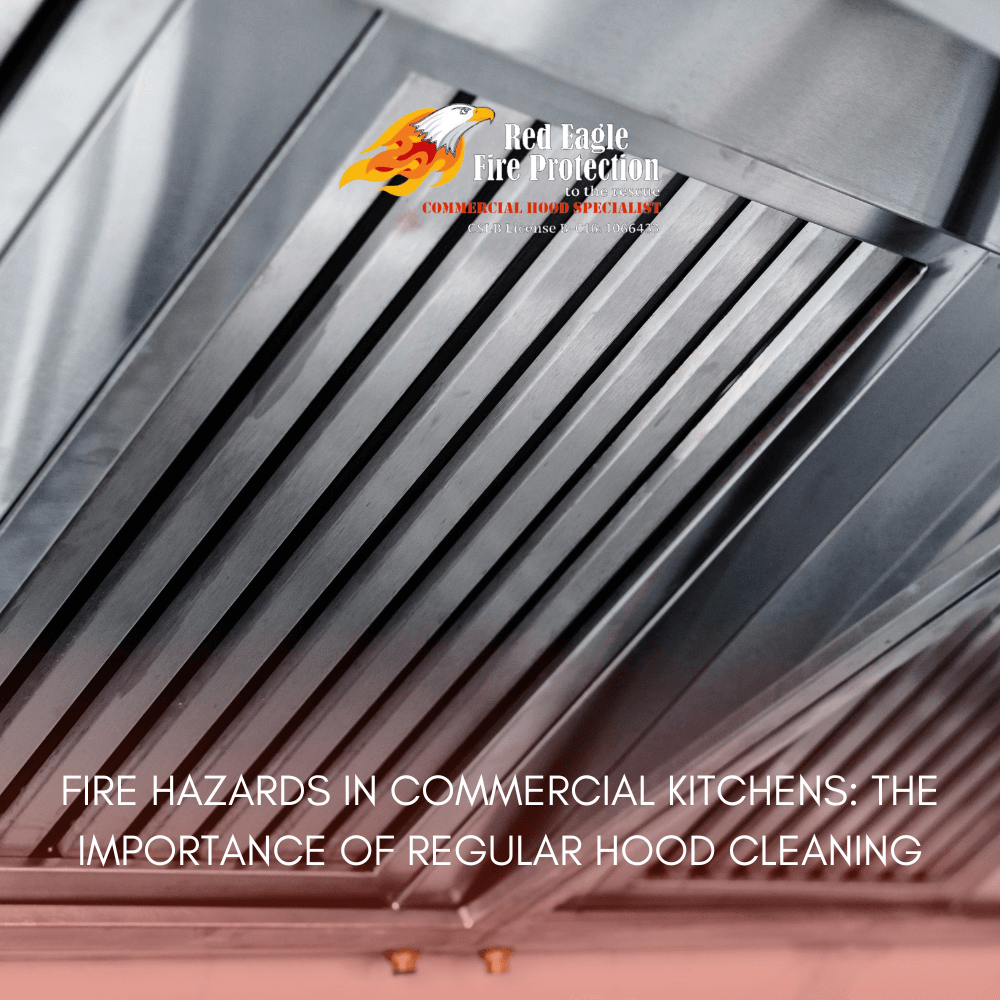Commercial kitchens are bustling environments where safety is a top priority. One of the most overlooked yet critical safety measures is regular kitchen exhaust hood cleaning. Without proper maintenance, the buildup of grease and debris in exhaust systems can lead to dangerous fire hazards. Understanding the importance of hood cleaning can help prevent costly disasters and keep your kitchen running smoothly.
How Grease Build-Up Leads to Fires
Every time you cook, grease-laden vapors rise and collect inside the exhaust hood and ductwork. Over time, this greasy residue accumulates, making the kitchen ventilation system a potential fire hazard. In the heat of a busy kitchen, this buildup can ignite, causing rapid fire spread. Regular kitchen hood cleaning eliminates this risk, ensuring your kitchen remains safe.
The Role of Exhaust Hoods in Fire Prevention
Your kitchen’s exhaust hood is more than just a way to ventilate smoke and odors—it’s a crucial component in preventing fires. Kitchen exhaust hood cleaning helps remove grease buildup that can fuel fires. When an exhaust system is kept clean, it efficiently removes heat, smoke, and vapors, reducing the chances of ignition.
Key Fire Hazards in Commercial Kitchens
- Grease buildup in hoods and ducts
- Flammable debris trapped in exhaust fans
- Heat sources near uncleaned ventilation systems
- Inadequate air circulation due to clogged filters
Each of these hazards can be effectively managed with routine commercial kitchen hood cleaning. Neglecting this crucial task increases the risk of a small flame turning into a full-blown kitchen fire.
How Often Should You Clean Your Kitchen Exhaust Hood?
The frequency of kitchen exhaust hood cleaning depends on the volume of cooking and the type of food being prepared. High-grease cooking environments, such as restaurants specializing in fried foods, require more frequent cleaning—typically every 3 months. Smaller kitchens with lower grease production may need cleaning every 6 months. Consulting with a professional cleaner will ensure your system stays up to code and fire-safe.
Benefits of Regular Hood Cleaning
Beyond fire prevention, regular hood cleaning offers several other benefits:
- Improved air quality: Clean hoods remove smoke, odors, and contaminants more effectively.
- Energy efficiency: A clean exhaust system works more efficiently, saving energy and reducing utility costs.
- Compliance with safety standards: Professional commercial kitchen hood cleaning ensures you meet local fire and health codes.
Why Hire Professional Hood Cleaning Services?
While some business owners may attempt DIY cleaning, it’s recommended to hire professionals for kitchen exhaust hood cleaning. A professional service ensures a thorough clean, reaching areas that may be missed during manual cleaning. They also help maintain a cleaning schedule, making sure your kitchen always meets fire safety standards.
Conclusion
Fire hazards in commercial kitchens are a serious threat, but they can be effectively managed with regular kitchen exhaust hood cleaning. By removing grease buildup, improving air quality, and ensuring compliance with safety regulations, routine hood cleaning helps protect your business, staff, and customers from dangerous fires.
READ MORE:
How Routine Kitchen Exhaust Hood Cleaning Prevents Dangerous Grease Fires

